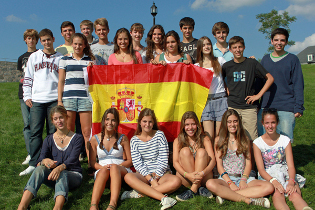Studying in Spain: Everything You Wanted to Know
More and more people are interested in the possibility of studying in Spain. The cost of education, admission conditions, accommodation, student benefits and other issues worry future students. With such a serious choice, you want to be informed about all the important aspects. Let’s consider the most common questions related to studying in Spain.
To enter a Spanish university, you must have completed secondary education, which allows you to enter a higher educational institution. The opportunity to enter the university is open not only to school graduates, but also to students of Russian universities, as well as certified specialists. Each of them will have to enter the level of study corresponding to their level of education. However, a mandatory requirement for all those planning to study in Spain is knowledge of Spanish or English.
To confirm the level of proficiency in foreign languages, international exams are used, the results of which are recognized throughout the world. To assess proficiency in Spanish, you can take the DELE exam, and to assess the level of English as a foreign language, the TOEFL exam is used.
To enter the universities of the kingdom, it is required to have a level of Spanish B1 and above. As for English, each university independently determines its requirements for future students.
It is important to note that in the pedagogical, medical faculties (except for advanced training programs) and some faculties with a creative focus (vocal, musical instruments), instruction is conducted exclusively in Spanish.
The Selectividad exam, which existed until recently and which we have repeatedly mentioned in our materials, has become an integral test for all applicants. However, in the summer of 2013, the Spanish Minister of Education announced the abandonment of this system and proposed instead to take into account the grades received by applicants at the preliminary stage of the bachillerato when entering universities. The question of simplifying entrance examinations for foreigners remains open.
There is no unified register of universities in Spain. Each educational institution posts the necessary information about itself on the Internet. One of the factors that reflects the quality of education is the number of foreign students studying at a particular university. Therefore, you should pay special attention to this data, which can often be found on the official website of the university or requested directly.
The cost of education in various educational institutions also does not have a single document, but the average values are: approximately 1000 to 1400 euros for one course at a public university and approximately 4 times more – from 6000 euros – at a private university.
In Spain, scholarships are not awarded solely for academic excellence. To receive financial support, it is necessary to engage in scientific activity. Scholarships are targeted assistance to young scientists who devote their time to studying a specific problem. Particular attention is paid to research and development that can lead the Spanish economy out of the ongoing crisis.
Among the privileges for students, it is worth noting the reduced cost of travel on some types of public transport, discounts on the purchase of a subscription to the gym, when buying tickets to museums, theaters, cinemas and other places. As for accommodation, if there is a free room in the hostel, then you will most likely be allowed to move into it. In this case, accommodation will cost half as much as renting a small apartment.
